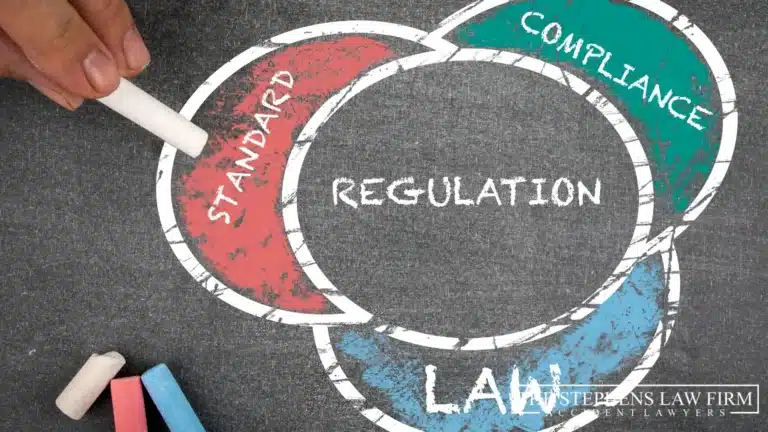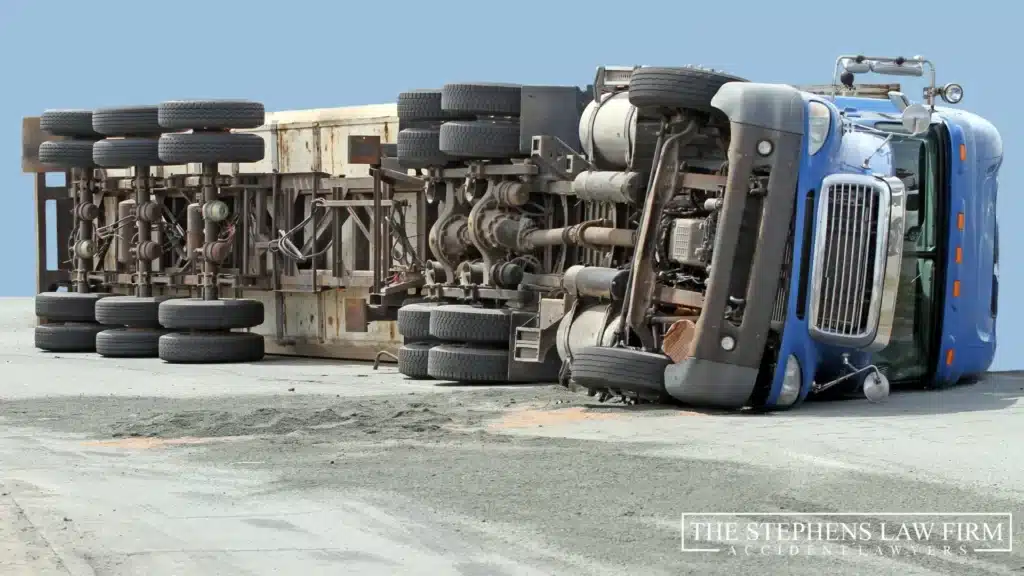Federal & State Rules for the Trucking Industry
Driving a huge 18-wheeler is no small task. Without trucking regulations, the number of fatal accidents on the road would increase significantly. The Federal Motor Carrier Safety Regulations (FMCSR) provide rules that truck drivers and companies must follow. The purpose of these rules is to set a standard for truck driving and minimize danger.
If you have been in a wreck and have a case against a driver or company, you will likely hear about the FMCSR. To prove that the driver is at fault, your lawyer will seek evidence that the company or driver violated federal or state rules. If the trucking company or operator violated a state or federal regulation you might be entitled to additional compensation.
Who Does the FMCSR Apply To?
These rules apply to employees and employers who operate commercial motor vehicles across state lines, otherwise known as interstate commerce. If a company does not have to abide by the FMCSR, they may have to comply with similar state rules.
The full FMCSR are hundreds of pages long. Some of the most common regulations involved in tractor-trailer accidents include:
- 391 – Qualification of drivers. This section details who is fit to be a semi-truck driver. Drivers typically have to be at least 21 years old, have a commercial driver’s license, meet medical requirements, and have English proficiency.
- 392 – Driving of vehicles. Drivers and companies must follow pre- and post-trip inspection guidelines. The driver has to also be in good physical condition.
- 393 – Safety requirements. All the brakes, lighting, and warning reflectors must be working and in good condition.
- 395 – Driving hours. There is a maximum number of on-duty hours that drivers can accumulate. A driver also cannot be on the road for more than 11 consecutive hours. Truck drivers must keep an updated logbook of their hours.
Federal regulations also include:
There is a portion of the FMCSR dedicated to driving rules for commercial vehicles. Drivers must change lanes properly, not speed or follow too closely, and yield the right of way. Many truck crashes happen due to unsafe driving practices. The rules also prohibit texting while driving.
A truck driver on the road while under the influence is a danger to all the drivers around them. There are requirements for drug and alcohol testing. Testing should happen before employment, after an accident, at random, and with reasonable suspicion.
Big trucks have to go through annual inspections for safety reasons. The driver or company should also inspect trucks before and after trips. Inspection prevents equipment failure that can lead to accidents if unchecked.
You can find the complete federal regulations at FMCSA‘s website. While some exemptions apply, many states also use these regulations for intra-state vehicle operation. If you have been injured in an 18-wheeler accident, you should find an experienced lawyer to help you with your case.
When you or a loved one gets injured, the last thing you want to worry about are motor vehicle laws. A Texas commercial truck accident attorney in West Houston like the Stephens Law Firm Accident Lawyers can take these matters off your hands. You deserve compensation for your accident. Call today for a free consultation.

From fatigued drivers to poorly maintained rigs, we know what causes these crashes—and how to hold the right people accountable. Joe Stephens can help you fight for your recovery.
Types of Trucking Accidents We Handle in West Houston and Across Texas:
- Jackknife Accidents
- Truck Rollovers
- Tire Blowouts
- Truck Driver DWI
- Wide Turn Accidents
- Blind Spot Accidents
- Read End Accidents
- Brake Failure
- Underride Accidents
- Lost Load Accidents
- Head-on Collisions
- T-Bone Collisions
West Houston Truck Accident Lawyer
Call The Lawyer Who Wins Truck Accident Lawsuits
When your case requires the skill and knowledge of a top rated West Houston vehicle accident lawyer, Joe Stephens is the expert you’re looking to work with. Having tried over 100 cases to a successful verdict, he has a solid reputation for stalwart representation for his clients. Cases involving commercial truck wrecks can be very complex and present difficulty proving negligence of the truck driver, the trucking company, or both. The Stephens Law Firm has a reputation to represent professionally those families that have lost someone in truck accidents, as a negligent death attorney, Joe’s experience with these cases allows him to get right to the heart of the matter, his clients rights, and owed compensation.




